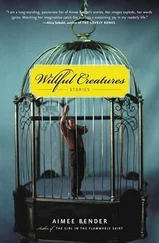I sat very still, in my glass booth. Hands folded in my lap. A mildew smell drifted over from the yellowing pages of the phone book. When, finally, George drove up in an old gray VW Bug, his hair matted, glasses on, stubble on his cheeks, wearing old jeans and sandals and a T-shirt, at first I just watched him park, putting on the parking brake, opening the door, and I let the relief wash over me, because I knew how he was supposed to look and there he was, real, looking exactly like that.
Hey, I said, standing, waving from the phone booth. He walked over with a stride of seriousness. We hugged. This, the gift of the steelworkers and the wire operators who had installed the poles that crossed the city. He smelled of fresh-cut apples, and sureness, and my head rested into the nook of his neck. After a minute, he pulled back, hands grasping my shoulders, and asked me what happened. I didn’t know how to answer, so I just said that my dad was on the way and Joseph had vanished-that I’d seen him and he seemed off and I’d gone for the phone to make a call and ten seconds later, when I’d returned, he was gone. George nodded, listening. We left his car parked in the lot and exited the store area to walk over to the apartment building. When the light at Vermont turned green, we stepped into the street and George grabbed my hand and the ghosts of our younger selves crossed with us.
By the time we arrived at the front entrance of Bedford Gardens, my father was angling his car into a narrow parallel spot on the street. His office wasn’t far, and it was past the worst traffic time now, so he’d just taken Sunset west as soon as his secretary passed along the message. Once the car was set evenly between bumpers, he unfolded himself out of it, in his usual lawyer suit, navy blue with faint gray stripes, and that black-and-gray hair, as imposing as ever. He wiped his forehead down as if to pat his thinking into place, nodded a hello to George and then came up and hugged me tightly, closer than usual, his hands broad paddles on my back.
It’ll be okay, he said, when he saw my face.
Gone, I said, stupidly.
He peered up the stairs, into Bedford Gardens. From street level, all the lights in the building seemed to be out.
He’s not there, I said.
How about this, said Dad, patting for his wallet. Let’s grab some food first. And you can tell us what you know. We’ve been through this before. Beth said you sounded awful on the phone, he said. He looked at me closely, eyebrows low. You don’t look great, he said. Did he hurt himself? he asked.
No, I said. No blood.
Drugs?
No drugs, I said.
But my voice was so quiet and faltering that I walked shoulder to shoulder between the two of them, up the blocks, as if they were bodyguards protecting me from the elements of street and store. I was still wearing the same T-shirt and jeans I had worn to school, and I had no sweater, so, halfway up the walk, my father took off his suit jacket and handed it over without a word.
We passed diners, and book buyers, and smokers, and moviegoers.
At the doorway of a French café near Franklin, we turned as a trio and entered. It was a small place with an uninviting stone façade, but inside, the room was warmly lit, with deep-red walls and a dangling gilded dimmed chandelier and menus so tall I could hide my head behind them. At the back counter, several people wound around stools sipping from half-glasses of wine for the weekend wine-tasting, as advertised on the large chalkboard over the bar. The three of us settled into a booth.
Sit, Dad said. He got up and spoke to a waiter, who brought us each a glass of water. Dad pushed his over to me. Drink, he said. George waited, hands folded, across the booth. It was as if the two of them had decided telepathically not to ask me anything until we were settled. Dad returned to the waiter and whispered more. He strode back and forth between the two sides of the room with ease. I admired that stride; it was like he folded space in two with it. I rarely saw him so focused on a task like this: this father of the checklists and the special skill, the one who had made the stool, so many years ago.
He’s good, George said, watching, nodding. He was pulling at the skin on his thumb. I dug in my pocket, found a ponytail holder, handed it over.
George reddened. Thanks, he said. In seconds, he had it wound around his thumb and was pulling on the elastic.
Did you call Mom? Dad said, returning to his spot.
I sipped the cool water. The waiter returned with an egg-brown mug of hot water and a basket of tea options.
Drink that too, said Dad. You’re shivering.
I left her a message, I said, pulling out a peppermint tea bag. It’s late there, so she probably won’t get it till morning.
It’s good you were there, Dad said, accepting his own coffee mug, wrapping his hands around it.
She told me to go, I said.
Your mom did? George asked.
She called this afternoon and asked me to check on Joseph, I said. She was worried.
Dad exhaled loudly. Closed his eyes. She’s right about half the time, he said, shaking his head. It’s confusing.
And there, in our corner, while the waiter stepped over with his pad of paper, he laughed a little.
After we ordered, I told them both the story in detail, except for what I’d seen with the chair legs. I did not explain any of that, as it did not feel to me in any way explainable. My father listened intently, still warming his hands on the thick porcelain of his coffee mug.
So it’s the usual, he said. He stared into his drink, thinking. Right?
I guess, I said.
Then why are you so shaken up? Dad asked.
Good question, said George, twanging his thumb.
I rolled the tea bag envelope into a tube. Steam rose in flourishes from my mug.
I don’t know, I said, unconvincingly.
George raised his eyebrows. Traced the table’s wood grain with his fingers. He seemed to be feeling the missing words, the gap, and he looked at me keenly, as if to make a bookmark for later.
A steak frites arrived for George. A jambon sandwich for my father. I was waiting on an onion soup.
Start, I said.
My father tilted his head, like it didn’t all fit together. His baguette sandwich was wrapped in white butcher paper and halved on the bias. He pushed it aside.
Let’s just go over it again, he said, shaking a raw-sugar packet into his coffee. You called George when?
After, I said.
And the window was open? Dad asked.
When I left the room, the window was open, I said.
And when you returned?
It was still open.
And did you call George then?
Shortly after, I went to the store and called George, I said. Joseph’s phone doesn’t work, I said.
I think it was around seven-fifteen, George said, eating a French fry. Fry? he said.
Dad took one, distractedly.
I’m just trying to understand, Dad said. He emptied three more sugar packets into his coffee. Stirring. He only ate that much sugar when he was really trying to focus; once, during the research phase of a difficult case, he’d gone through fourteen bars of chocolate in one weekend.
So what did you do right then ? he asked. He leaned forward, intent. In addition to the medical dramas, he also enjoyed a lot of cop shows.
Right when?
Right when you walked back into the room. He was gone then?
Yes.
Did you go to the window? Dad asked.
From the booth, I looked through the café window to the street, to the faint shine of a silver bumper, parked at a meter. People walking by in blurs.
No, I said.
No?
No.
Why not?
I don’t know, I said. I was upset.
Did you look around the room?
No, I said.
Really?
Читать дальше












